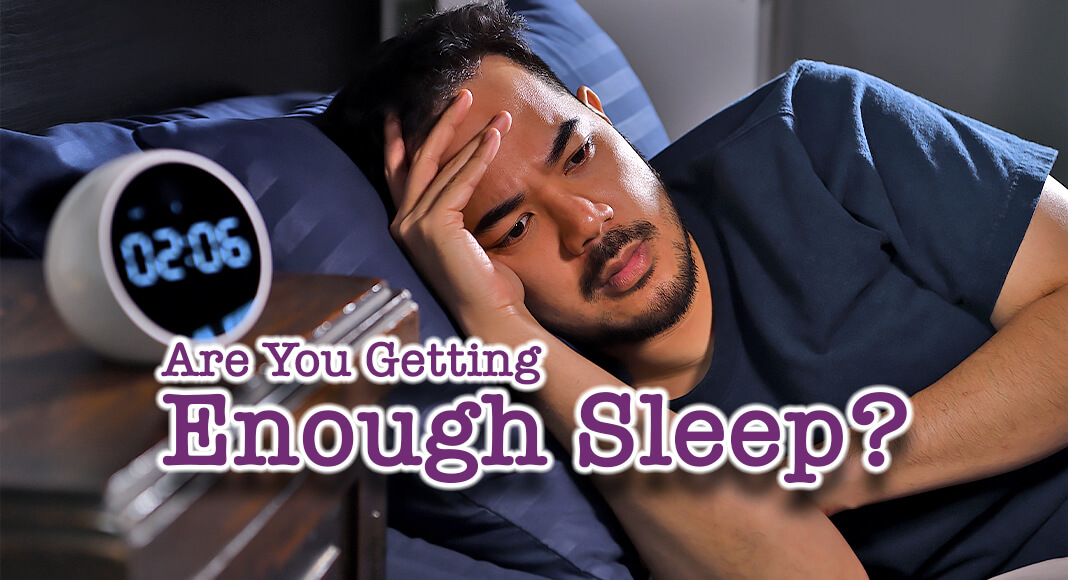
Mega Doctor News
March 15 marks World Sleep Day, an annual call to action from the World Sleep Society to spread awareness of the need to get sufficient sleep to stay healthy. This year’s theme is “Sleep Equity for Global Health.”
Maya Ramagopal, a professor of Pediatrics at Rutgers Robert Wood Johnson Medical School and a sleep medicine expert, discusses the importance of sleep in a healthy lifestyle — and where Americans are falling short.
Discuss the importance of this year’s theme “Sleep Equity for Global Health.”
Sleep is essential for overall wellbeing. Sleep equity means that everyone must have access to adequate sleep regardless of location, socioeconomic status and environmental factors. The consequences of sleep disparities are significant, especially in marginalized societies, where disease burden is already high.
Do Americans get enough sleep? Ramagopal: The amount of sleep needed varies by a person’s age. Toddlers need 11 to 14 hours daily, which includes naps. School-age children need 9 to 12 hours of sleep, teens need eight to 10 hours and adults need at least seven hours.
According to the Centers for Disease Control and Prevention, six in 10 middle schoolers and seven in 10 high schoolers don’t consistently get enough sleep. The CDC also reports that 35 percent of U.S. adults are not getting the recommended amount of sleep.
How does sleep affect your health? Ramagopal: Sleep is critical for overall good health. Lack of sleep has been shown to be associated with obesity, Type 2 diabetes, poor mental health, accidents during driving, attention or behavior problems and poor school performance.
What is good sleep hygiene?
Ramagopal: I believe the biggest factor for people of all ages not getting sufficient sleep is because they use electronics close to bedtime. Technology stimulates your brain, which makes it more difficult to fall asleep. Even with blue light filters, the content can be a factor in preventing sleep onset.
To improve sleep, a consistent sleep schedule should be maintained, including on weekends — even though it is tempting to sleep in. Make sure the room temperature is comfortable and the room is as dark as possible. Avoid eating a large meal at least three hours before bedtime and do not consume caffeine at least six hours before going to bed. While moderate to vigorous exercise can increase sleep quality by reducing the amount of time it takes to fall asleep, you do not want to engage in vigorous activity within the hour before bedtime.
It is important for adults to model good sleep behavior for children in their home.
Is climate change affecting our sleep?
Ramagopal: New research seems to indicate that it is. A study published last year in the journal One Earthshowed that increased temperature shortens sleep primarily through delayed onset, increasing the probability of insufficient sleep. The researchers estimated that by the end of the century, warmer temperatures could result in people sleeping about 8 to 10 minutes less per night.
What do you recommend for people who have difficulty either falling asleep or staying asleep? When should you see a doctor?
These symptoms are known as insomnia, which is defined as the inability to fall asleep and stay asleep despite an adequate opportunity to sleep. Additionally, there is some form of impairment during the day. If symptoms occur for more than three nights a week and persist for longer than three months, it is known as chronic insomnia. The cause of acute insomnia can be anxiety and stress, an acute illness or pain. Chronic insomnia is caused by medical problems like sleep apnea, mental health problems like anxiety and depression. Poor sleep hygiene like using electronics prior to sleeping, caffeine and alcohol intake, and strenuous exercise close to bedtime are some of the causes of sleep-onset insomnia.
Good sleep hygiene measures like consistent going to bed and wake-up times, avoiding caffeinated beverages after 2 p.m. and avoiding bedtime exposure to blue light from electronics should be followed.
Calm music, yoga, white noise can be used as relaxation techniques to help with sleep onset.
If there are underlying medical or mental health conditions or if symptoms do not improve with lifestyle changes, please see a medical health professional.













